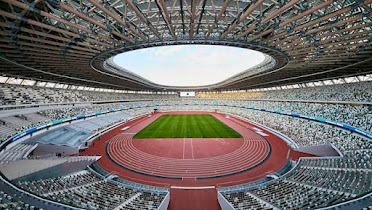Tokyo Olympic Venues: Destined for Destruction?
As many people know, the Olympic Games Tokyo 2020 recently came to an end. The games stretched for a total of 17 days and were one of the most viewed events in the world with millions worldwide tuning in to watch the athletes compete. The Olympic games occur every four years, and due to the sheer amount of tourism and attention they generate, countries vie to host the games whenever they can. However, cities almost always do not already have the facilities available to host all the different athletic events as well as places for the fans to view all of them. This results in every 4 years, a city spending billions to build world-class facilities for athletes and teams to compete in, Tokyo, Japan being the most recent city charged with this task.
For the 2020 games, Japan spent around 15.4 billion USD, making it the most expensive summer Olympic games to date, and starting a series of problems for the country. Back in 2013 when Japan won the bid and was awarded hosts of the 2020 games, Japanese governments projected an economic legacy of over 100 billion USD to Japan, much higher than the 15.4 billion spent, but that was before COVID-19 happened. A huge part of that 100 billion dollar evaluation is the money generated from tourism both during the games and visitations after, but COVID-19 effectively eliminated all of that revenue, as no spectators, domestic or foreign were allowed to buy tickets and attend the games. This is where the already constructed multi-billion dollar venues have a huge role to play.
In years past, host countries have entirely abandoned, reconstructed, or sold the venues/stadiums they put so much money into creating, essentially throwing away the billions they put into constructing them, which used to be ok because of the money generated from the games. However, Tokyo and Japan do not have that same luxury. Realistically if they could continue to get value out of the stadiums for years to come, they wouldn't be losing that $15.4 billion investment and could still greatly profit despite the COVID-19 restrictions. Ideally, I would hope Tokyo really focuses on this especially considering how difficult it looks to be for them to net break even, so they could do things like repurposing the Olympic village into housing to make money. They could also sell or use some of the more common stadiums to universities or professionals teams to use as their own home stadiums. Just generally they really should be finding ways to utilize every part of that 15.4 billion spent to remove that title given to these games as a "write-off" event for Japan. And so while history would suggest these stadiums are destined to be abandoned, I think and hope Tokyo will do a good job handling these venues now that the games are done.
Sources:
https://www.republicworld.com/sports-news/other-sports/tokyo-olympics-what-happens-to-expensive-venues-after-summer-games-end.html
https://time.com/6089274/tokyo-olympics-economic-benefits/
https://www.cfr.org/backgrounder/economics-hosting-olympic-games
https://www.bbc.com/news/world-asia-57240044




You address a problem that the world has recently come to acknowledge in the last 15 years or so. The venues in Beijing sat empty for years after the Olympic Games there. You point out the costs for the Tokyo Games that were to be offset by the influx of money generated by the Games... until COVID changed everything. You wrote three paragraphs that end with a "I hope..." On what grounds are you so optimistic that these venues will not become empty cavernous structures? What is the second picture? How much did TV broadcast rights generate for Tokyo and the IOC?
ReplyDelete